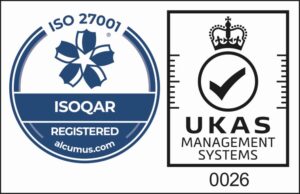IT MSPs and IT Vendor Management: Ensuring Optimal Vendor Performance and Service Delivery
In today’s complex IT landscape, businesses often rely on multiple IT vendors to meet their technology needs. Managing these vendor relationships effectively can be challenging and time-consuming. This is where IT Managed Service Providers (MSPs) play a vital role in assisting businesses with IT vendor management. Here’s an in-depth look at how MSPs help businesses optimize their vendor relationships:
Vendor Selection and Evaluation
MSPs help businesses identify and select the right IT vendors based on their specific requirements. They have in-depth knowledge of the industry and can provide valuable insights and recommendations. By evaluating vendor capabilities, reputation, pricing structures, and service level agreements (SLAs), MSPs ensure that businesses partner with vendors who can meet their needs effectively.
Contract Negotiation
MSPs assist businesses in negotiating contracts with IT vendors to secure favorable terms and conditions. They have expertise in contract management and can ensure that contracts include essential provisions, such as performance metrics, service level objectives (SLOs), and penalties for non-compliance. MSPs help businesses achieve a fair and balanced agreement that aligns with their objectives and protects their interests.
Vendor Performance Monitoring
MSPs closely monitor the performance of IT vendors on behalf of businesses. They establish key performance indicators (KPIs) and SLAs to measure vendor performance objectively. By monitoring metrics such as response times, resolution rates, and uptime, MSPs ensure that vendors meet their contractual obligations and deliver services according to agreed-upon standards.
Issue Escalation and Resolution
When issues arise with IT vendors, MSPs act as the primary point of contact for businesses. They take ownership of problem escalation and work with vendors to resolve issues promptly. MSPs leverage their technical expertise and established relationships with vendors to advocate for businesses and ensure timely issue resolution, minimizing the impact on operations.
Vendor Relationship Management
MSPs maintain ongoing relationships with IT vendors on behalf of businesses. They foster open lines of communication, conduct regular vendor performance reviews, and address any concerns or gaps in service delivery. MSPs act as intermediaries, facilitating effective communication between businesses and vendors to promote collaboration and partnership.
Technology Innovation and Vendor Assessment
MSPs stay up to date with the latest technology trends and advancements. They assess vendor offerings and evaluate new technologies to ensure that businesses have access to the most suitable solutions. MSPs provide guidance on potential technology upgrades or replacements, ensuring that businesses are leveraging the best available options from their vendors.
Vendor Consolidation and Rationalization
In cases where businesses work with multiple vendors for similar services, MSPs can help with vendor consolidation and rationalization. By streamlining vendor relationships and reducing vendor overlap, MSPs optimize costs, improve efficiency, and simplify vendor management processes.
By leveraging the expertise and services of MSPs, businesses can effectively manage their relationships with IT vendors. MSPs streamline the vendor management process, ensure optimal vendor performance and service delivery, and free up businesses’ internal resources to focus on their core objectives. Through effective IT vendor management, businesses can drive operational efficiency, enhance service quality, and achieve greater value from their vendor partnerships.




